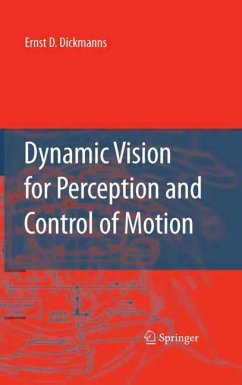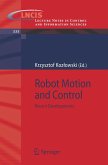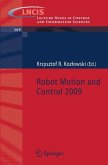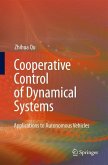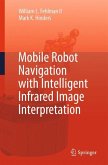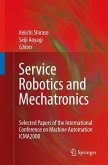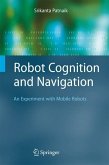The application of machine vision to autonomous vehicles is an increasingly important area of research with exciting applications in industry, defense, and transportation likely in coming decades.
Dynamic Vision for Perception and Control of Motion has been written by the world's leading expert on autonomous road-following vehicles and brings together twenty years of innovation in the field by Professor Dickmanns and his colleagues at the German Armed Forces university in Munich.
The book uniquely details an approach to real-time machine vision for the understanding of dynamic scenes, viewed from a moving platform that begins with spatio-temporal representations of motion for hypothesized objects whose parameters are adjusted by well-known prediction error feedback and recursive estimation techniques.
A coherent and up-to-date coverage of the subject matter is presented, with the machine vision and control aspects detailed, along with reports on the mission performance the first vehicles using these innovative techniques built at Munich. Pointers to the future development and likely applications of this hugely important field of research are presented.
Dynamic Vision for Perception and Control of Motion will be a key reference for technologist working in autonomous vehicles and mobile robotics in general who wish to access the leading research in this field, as well as researchers and students working in machine vision and dynamic control interested in one of the most interesting and promising applications of these techniques.
Dynamic Vision for Perception and Control of Motion has been written by the world's leading expert on autonomous road-following vehicles and brings together twenty years of innovation in the field by Professor Dickmanns and his colleagues at the German Armed Forces university in Munich.
The book uniquely details an approach to real-time machine vision for the understanding of dynamic scenes, viewed from a moving platform that begins with spatio-temporal representations of motion for hypothesized objects whose parameters are adjusted by well-known prediction error feedback and recursive estimation techniques.
A coherent and up-to-date coverage of the subject matter is presented, with the machine vision and control aspects detailed, along with reports on the mission performance the first vehicles using these innovative techniques built at Munich. Pointers to the future development and likely applications of this hugely important field of research are presented.
Dynamic Vision for Perception and Control of Motion will be a key reference for technologist working in autonomous vehicles and mobile robotics in general who wish to access the leading research in this field, as well as researchers and students working in machine vision and dynamic control interested in one of the most interesting and promising applications of these techniques.

